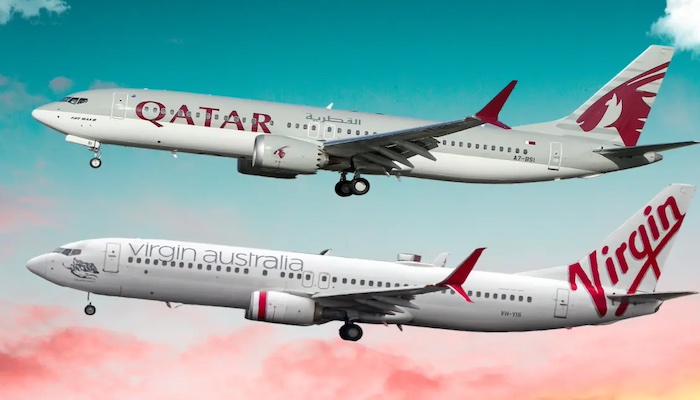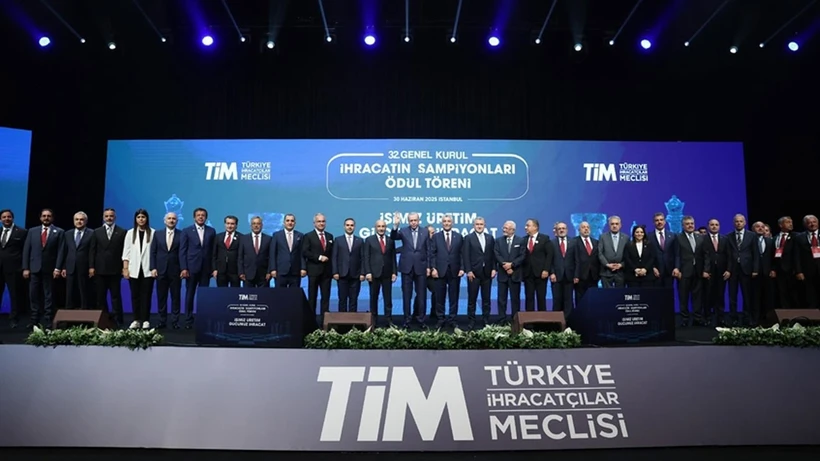
İçindekiler
Australia Approves Qatar Airways’ Strategic Investment in Virgin Australia to Disrupt Qantas Dominance
The Australian government has conditionally approved Qatar Airways‘ acquisition of a 25% stake in Virgin Australia, marking a pivotal shift in efforts to reinvigorate competition in the nation’s aviation sector. Treasurer Jim Chalmers outlined that the deal—valued at approximately AU$800 million—includes legally enforceable commitments requiring Qatar Airways to bolster Virgin’s international flight capacity, particularly on high-demand routes to Asia and the Middle East, while supporting Virgin’s long-term goal of relaunching its own long-haul fleet.
Breaking Qantas’ Stronghold
The decision directly targets Qantas’ 60% stranglehold on Australia’s domestic and international aviation markets. Analysts note that Virgin Australia, which emerged from bankruptcy in 2020 under Bain Capital’s ownership, has struggled to regain its pre-pandemic footing as a viable competitor. With Qatar’s investment, Virgin gains access to the Gulf carrier’s global network, premium-flight expertise, and financial muscle—resources critical for challenging Qantas’ monopoly on lucrative routes like Sydney-Los Angeles and Melbourne-Doha.
A Strategic Reversal for Qatar Airways
The deal follows Australia’s controversial 2023 rejection of Qatar Airways’ request to double its weekly flights to major cities—a move widely criticized as protectionist amid allegations of lobbying by Qantas. By acquiring a stake in Virgin, Qatar sidesteps flight-cap restrictions while securing a foothold in Australia’s $45 billion aviation market. Industry insiders suggest the partnership could eventually enable code-sharing agreements and streamlined connections through Qatar’s Doha hub, positioning Virgin as a stronger player in international travel.
Government’s Multi-Pronged Competition Push
The approval aligns with Prime Minister Anthony Albanese’s broader campaign to dismantle market concentration. In addition to signaling willingness to acquire Rex Airlines—a regional carrier controlling 8% of domestic routes—the government has:
- Proposed reforms to airport slot allocations to prevent Qantas from monopolizing prime takeoff/landing times.
- Launched an ACCC (competition watchdog) inquiry into airline pricing and service standards.
- Pledged $500 million to upgrade regional airports, lowering barriers for smaller carriers.
Challenges and Controversies
While consumer advocates applaud the move, critics warn of risks:
- Qantas’ Response: Qantas CEO Vanessa Hudson called the decision “distorting,” arguing foreign state-owned airlines (Qatar is government-backed) have unfair advantages.
- Labor Concerns: Unions fear Qatar’s involvement could pressure Virgin to cut costs, mirroring its contentious labor practices in the Gulf.
- Slot Availability: Expanding Virgin’s international flights hinges on securing landing rights in congested hubs like Singapore and Hong Kong.
Global Aviation Implications
The deal underscores Qatar Airways’ aggressive post-pandemic expansion strategy, which includes stakes in Cathay Pacific, RwandAir, and China Southern. For Australia, it reflects a recognition that foreign investment may be necessary to counter domestic market stagnation. “Without this, Virgin risked remaining a secondary player indefinitely,” said CAPA Centre for Aviation analyst Peter Harbison.
What’s Next?
Virgin Australia is poised to test the waters of long-haul travel demand by leasing five wide-body Airbus A330 aircraft from Qatar Airways in 2025, signaling ambitions to resurrect its defunct international operations, which were suspended in 2020 amid financial restructuring. This strategic move aims to gauge market appetite ahead of a potential relaunch of Virgin’s global brand, possibly targeting routes across Asia, the U.S., or the Middle East. Meanwhile, regional carrier Rex faces mounting financial pressures, warning it may cease operations on key domestic routes without government support, sparking concerns about reduced connectivity—particularly for rural and remote communities reliant on its services.
The Albanese government is navigating a complex policy landscape, balancing calls to bolster competition in an aviation sector long dominated by Qantas against concerns over foreign ownership and national interest. Qatar Airways’ unresolved bid for additional Australian landing rights—blocked in 2023 amid contentious debate—underscores these tensions. As policymakers weigh subsidies for Rex and regulatory approvals for Virgin’s fleet expansion, travelers could reap the rewards of a more dynamic market: heightened competition may drive down fares, spur route expansion (especially on underserved regional and international corridors), and force legacy carriers to innovate, addressing longstanding complaints about reliability and service quality.
This inflection point follows years of industry consolidation and post-pandemic recovery challenges, with consumers and watchdogs alike demanding accountability from airlines accused of prioritizing profits over passenger experience. The outcome of these negotiations could reshape Australia’s aviation hierarchy, potentially ending an era of market complacency and ushering in a more competitive, consumer-friendly landscape.

